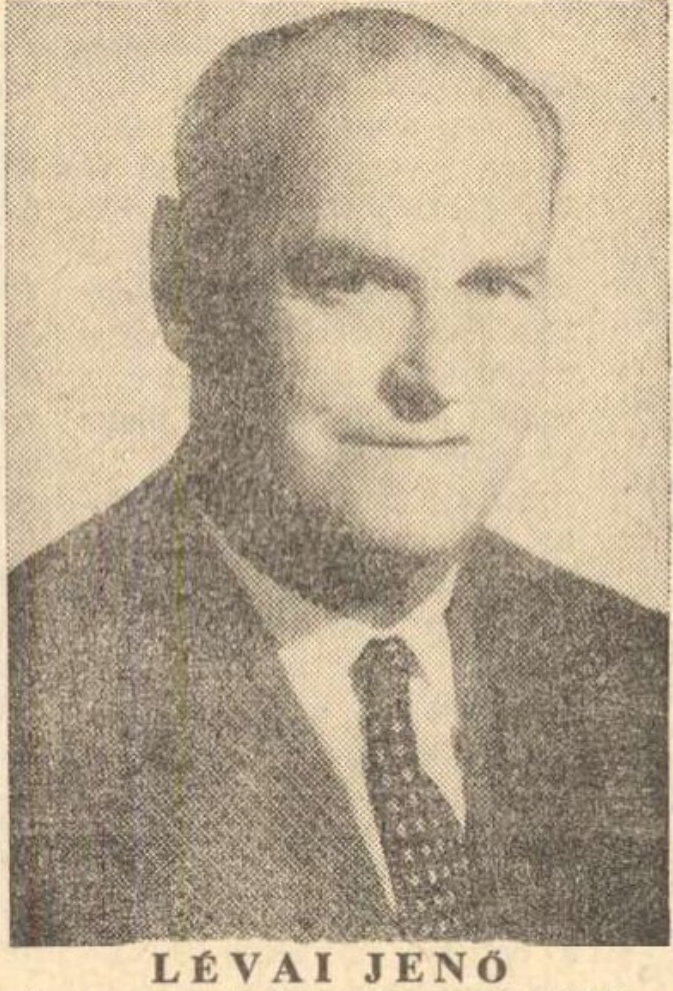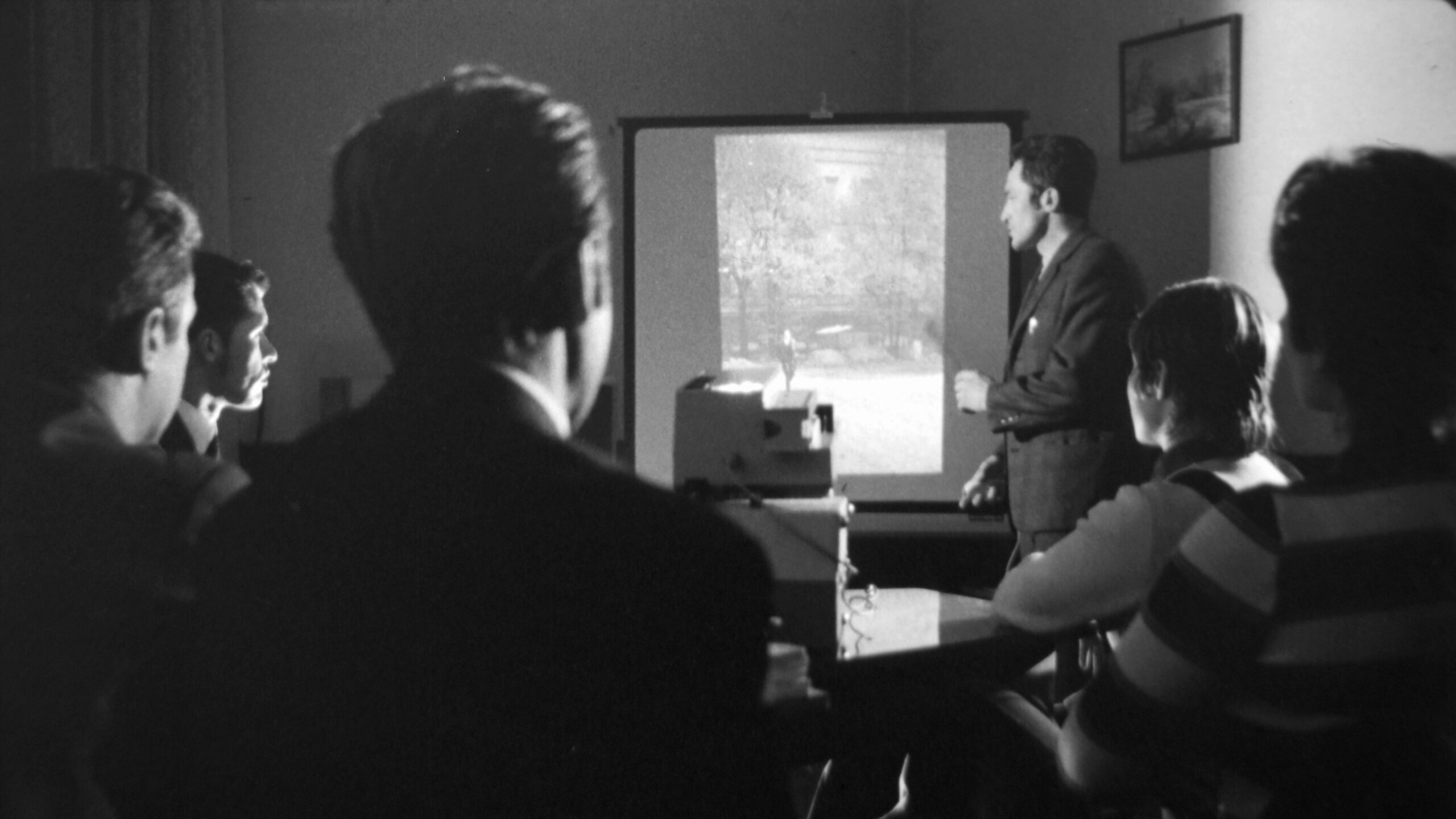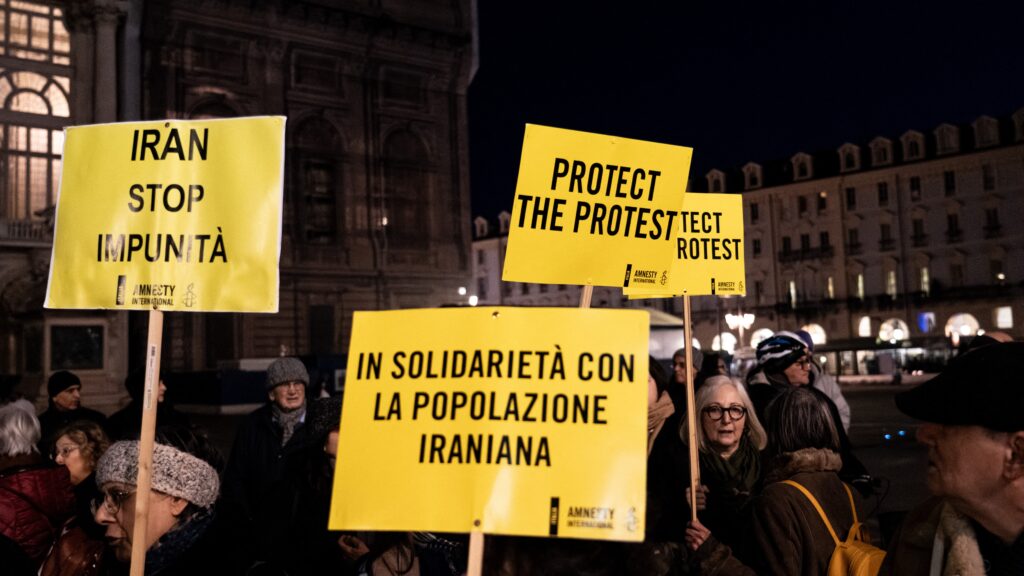Jenő Lévai (1892–1983), writer, journalist, and historian, was one of the very first chroniclers of the Holocaust in Hungary. His works—some of which were written nearly 80 years ago—remain influential to this day. His legendary archive, most of which unfortunately has been completely lost, must have contained astonishing treasures for Holocaust researchers. Although Lévai was a popular author during the early years after the Second World War, he was marginalized by the height of the Rákosi regime and was almost arrested as well. However, under the Kádár regime, the authorities needed a Jewish author with strong international connections for the coverage of several trials of global significance, such as the Kasztner trial in Israel and the Krumey trial, so Lévai was rehabilitated. Soon after, he was able to reinvent himself as a historian who travelled frequently to the West, maintained extensive correspondence, and published prolifically.[1]
What is less well known, however, is that between 1962 and 1964, Lévai was in contact with the Kádár-era secret services, primarily in the context of counterintelligence operations against Zionist activity. Although scholars have already briefly identified Lévai as the person codenamed ‘Lantos’ (meaning ‘Lutenist’), who was treated as a ‘social informant’ by the state security services, his activities have not yet been explored in detail.[2]
‘Lantos’ was primarily tasked with visiting and observing the Israeli embassy, but he was also used to spread disinformation and took part in a complex operational action aimed at compromising the then Israeli chargé d’affaires, Meir Shachar. As is well known, Israel was one of the first ‘Western’ countries to recognize the Kádár regime, and the Jewish state maintained an embassy at 37 Gorkij Alley in Budapest’s 7th District until 1967 (today known as Városligeti Alley; since the 1970s, a modern apartment building stands on the site). However, the Kádár regime had no interest in deepening ties with Israel and closely monitored the embassy staff, suspecting that undercover Israeli intelligence officers were among them. Therefore, the Hungarian personnel at the embassy were heavily infiltrated by Kádár’s secret service—agents were placed among the cleaning staff, cooks, drivers, and even regular visitors.
The first question is: how do we know who ‘Lantos’ was? ‘Lantos’ does not appear in the official network registry, but identification is not hopeless. One report signed in Lévai’s own hand was marked as authored by ‘Lantos’ in the Ministry of the Interior. One document refers to ‘Lantos’ as an ‘elderly, Jewish-affiliated, well-known writer’. The social informant revealed that he possessed a large Holocaust archive, had written a book about Eichmann, and had served as an expert in the Krumey trial. A guest list has survived from a reception held at the Israeli embassy, which ‘Lantos’ also reported on. Among the attendees, there were a few writers—perhaps László Passuth could have fit the profile, but he had not written a book about Eichmann, was not an expert, and did not possess an archive. Lévai, however, was there. Finally, ‘Lantos’ reported that he had submitted a report to the government about former SS officer Kurt Becher’s economic interests in Hungary, and in the Foreign Ministry’s files, there is indeed a 1961 report submitted by Lévai.[3] Based on the above, Lévai cannot, of course, be classified as an agent in the legal sense, nor do we claim this here; we are merely establishing the identification between him and ‘Lantos’, adding that state security treated him as a social informant.

The first known report he submitted was on 5 January 1962, to Major János Szabó from Subdivision II/2-e of the Ministry of Interior. According to the report, ‘Lantos’ spoke with Meir Shachar at the embassy, who expressed regret that the Hungarian press had written relatively little about the court verdict in the Eichmann trial. Shachar also complained that he was being bombarded with letters from the parents of his driver, a young man named J K. The parents were living in Israel, and wanted him to help their son emigrate. The matter was urgent, as the parents were ill and wished to see their son one last time. Although Shachar had contacted the Foreign Ministry, he received a negative response. According to ‘Lantos’, the reason was the young man’s conscription age. Shachar also complained that ‘in general, he is unable to get anything done’.
The next lines of ‘Lantos’s’ report offer insight into when his relationship with state security began, and what task he was assigned: ‘I seized the opportunity to attempt to initiate the assignment I had received from the comrades during our first conversation, early last year: to try to arrange a meeting between the chargé d’affaires and a suitable, older colleague from the Ministry of Interior. So, I pointed out that the passport issue was not a matter for the Foreign Ministry but fell under the jurisdiction of the Interior Ministry—why not turn there? I already knew the answer: “I cannot turn directly to anyone; I can only go through protocol.”’ ‘Lantos’ said that he had friends at the Interior Ministry and that if Shachar wished, he could try to help. ‘To my surprise, he immediately showed willingness.’ ‘Lantos’ suggested meeting at the Rózsadomb Restaurant. In the end, Shachar asked his interlocutor not to tell anyone about the matter for now—clearly out of caution.[4]
The matter then somewhat stalled; the social informant next visited Gorkij Alley in mid-March. In line with his handler’s instructions, he explained the delay by saying that both he and his friend from the Ministry of Interior had been ill. They agreed to meet as a trio at the restaurant, which took place on 23 March at 3pm. The meeting was secretly recorded on a hidden camera, and that day, Shachar (codenamed ‘Ábel’ for the duration of the operation) and Lévai (codenamed ‘Bicegő’, meaning ‘Limping One’) were also followed in the street. A detailed, minute-by-minute report was made of the operation.
The ‘friend’ from the Ministry of Interior was none other than Major Szabó, who also prepared the report about the meeting. According to the report, Shachar presented himself as left-wing, even a communist, and was well-versed in ‘Marxist terminology’. After a lengthy introduction, ‘Lantos’ suggested that they get to the point, after which Shachar complained that even the US was receiving more emigration permits from Hungary than Israel. Szabó indicated that he could only assist with individual cases: ‘I tried to create the impression of a humane person, someone loyal to the system, who is nonetheless trying to help reunite families.’ ‘Lantos’ suggested that Shachar draw a list of the most urgent cases, as Szabó could only take action if he had names. Shachar took out a small note from his pocket and handed it over: it listed six names, including the driver J K, but no personal data. Szabó pointed out that without data, he could not help. Shachar asked what personal information was needed, and promised to get it and pass it on to Szabó through ‘Lantos’. The conversation seemed to go well: ‘After the meeting, ‘Lantos’ told me the following: Shachar formed a good opinion of me, finds me sympathetic, and although he would welcome my intervention, he would like to talk to me more often even outside of that.’
During the conversation, other interesting political remarks were made. For example, Szabó noted that the Israeli chargé d’affaires ‘described, laughing, how the Americans are in a difficult position because of Mindszenty’. He was, of course, referring to Cardinal József Mindszenty, who was a political refugee at the US Embassy in Budapest for 15 years. ‘When meeting with the American chargé d’affaires, [Shacahr] regularly teases him and, for this purpose, never fails to ask about Mindszenty’s condition. The American chargé d’affaires jokingly offered to sell Mindszenty to Israel and even said he would pay for it if they would take him to the Israeli embassy. Shachar also referred to Mindszenty as a “dark rascal.”’ Shachar likely made these comments, along with his communist self-definition, partly to appear sympathetic to the Ministry of Interior official. Szabó even remarked that if Shachar were sincere, he would be ‘a truly exceptional odd fish’, but ‘from an operational perspective, Shachar’s statements and behaviour are illogical, unnatural, and should therefore be dismissed’—Szabó was clearly holding on to the preconception that the chargé d’affaires was actually a spy. Accordingly, Lieutenant Colonel Jenő Hazai, the division chief, also wrote: ‘There is strong suspicion that [Shachar] is an officer in Israeli intelligence or counterintelligence.’
What was the ultimate goal of the entire operation from the perspective of state security? The signs suggest at least three possible scenarios. According to the proposal of Lieutenant László Práger, the main goal was to ‘compromise’ Shachar, presumably by accusing him of using illegal means to achieve emigration. Additionally, another objective might have been to gain his trust, followed by ‘disinformation’—in other words, passing on misleading, false information to the Israeli side through him—or asking for favours in exchange for emigration or other concessions. In response to Szabó’s report, Deputy Division Chief Lieutenant Colonel Árpád Jámbor wrote that ‘the material is interesting, [certainly] not a wasted effort’, and suggested that perhaps Shachar would reward them with information in exchange for emigration permits. It might not be an entirely insignificant detail that essentially all the senior secret police officers working on the case were Holocaust survivors: Jámbor was a survivor of Dachau, Práger had escaped from forced labour (munkaszolgálat), and Hazai had escaped the deportation train in Komárom.
To improve the relationship, state security found two emigration cases that seemed ‘manageable’. One such case was that of M W, whose application had stalled, but ‘according to information from the passport office, they would have decided in W’s favour without our intervention anyway.’ ‘As a basis for further negotiations with Shachar, I suggest handling the two emigration cases in such a way that the result could be communicated to the envoy by the designated operative officer,’ wrote Práger.
‘Lantos’ spoke with the envoy again in May, at a ceremony held at the embassy—most likely coinciding with the celebration of Yom Ha’atzmaut. This report was discouraging: Shachar informed him that his ‘relevant superiors’ had advised him not to use ‘illegal means’ for family reunification. The envoy referred to this retreat as an ‘embarrassing situation’. According to the handler’s comment: ‘About two weeks ago, it was already apparent that something was wrong with the operation we had planned. Shachar gave evasive answers to “Lantos’s” inquiries, and it could be felt that he was going to report on the possibility of initiating emigration (to his superiors). However, we did not expect the situation to unfold this way, and that he would communicate it to us. In my opinion, the case should not be continued in any form. I suggest withholding permission for the emigration of the two individuals originally planned. I told “Lantos” that no further steps should be taken in the matter for the time being.’
‘Lantos’ next visited the Israeli embassy in February 1963. At this point, Shachar again indicated interest in the passport case of his driver, J K. The plan was once again revived, as it was now possible to ‘plant an operative officer’ in the circles of the diplomat. It is worth noting here that according to one report, J K ‘appears in our operative network’, meaning the envoy was trying to help a person with a passport issue who was himself an agent—clearly, the plan was to trap Shachar in this manner. It seems that ‘Lantos’ still discussed J K’s case with Shachar as late as September 1963, but the request was likely not processed, as Shachar applied for repatriation and was soon replaced. Nevertheless, they saw the attempt as not being in vain, because ‘Lantos’ had been able to ‘worm his way into their confidence effectively regarding the passport.’
‘After the departure of Shachar, “Lantos” also played a brief role in monitoring the next Israeli chargé d’affaires, David Giladi’
‘Lantos’, however, was able to provide further valuable information to his handlers. According to a June 1963 report, he suggested to Shachar that he would like to receive regular deliveries of Hungarian-language Israeli newspapers, especially the Új Kelet and the Hét papers. State security believed that these papers—‘dangerous’ Zionist publications—were distributed by the embassy, but the embassy told him that they too received them only irregularly, that they were read by female embassy staff because of the rumours, and then ‘scattered them’. ‘Lantos’ indicated to his handler that he might have been given an assignment based on false premises: ‘Is there no mistake in the information here?’ Shachar, on the other hand, also recounted that on 4 April, Communist dictator János Kádár received him for 30 minutes. ‘He got a great impression: Comrade Kádár conducted the conversation in a good mood and with a great sense of humour. Kádár also expressed his views on Israeli issues. He pointed out the reasons for a certain reticence—the Arab question and the importance of our economic interests there—although he was sympathetic to the struggle of the people of Israel.’ ‘Lantos’ also learned that ‘the Nazis…are moving strongly towards the A-bomb’ and that Israel must therefore ‘keep up a tight arms race’, and that the American embassy in Budapest considers that the death of Pope John XXIII is hindering the settlement of the Mindszenty issue. The handler described the report as ‘operationally valuable’.
After the departure of Shachar, ‘Lantos’ also played a brief role in monitoring the next Israeli chargé d’affaires, David Giladi. On 29 April 1964, he gave a longer report on Giladi and the editor of the Új Kelet newspaper, Dezső Schön. The former lived close to him, and they planned to meet several times. Giladi gave him the impression that he was going to follow diplomatic protocol and was not really interested in emigration, the focus being on trade. And he met with Schön and allowed him to reprint in the Új Kelet any of his writings published elsewhere, without charge. Police Captain Ferenc Faragó, who took the report, found it valuable.[5]
Finally, according to a report dated 30 June 1964, ‘Lantos’ visited the Israeli embassy two more times, giving a general picture of the new chargé d’affaires: Giladi was keeping away from illegitimate activities, but was still planning to distribute medicine among Hungarian Jews. He expected a big boom in the economic relations between Israel and Hungary and wanted to raise relations between the two countries to an ambassadorial level. ‘The chargé d’affaires is smart, informed.’ In his surveillance of Giladi, ‘Lantos’ appears to have been given no further assignments, and the file was closed after diplomatic relations were severed. Overall, it is important to note that some of the most basic information about ‘Lantos’ is not available for researchers. We don’t know exactly when and how he was recruited, we don’t have his ‘work file’, and we don’t know when and how his relationship with state security was severed. We do not know if he was employed in other areas and, if so, how they evaluated his performance there. What can be recorded, however, is that he was involved in at least two surveillance operations against the Israeli Embassy and his activities were considered valuable. His role in the secret operation against Meir Shachar at the Rózsadomb Restaurant stands out: the Israeli diplomat was ultimately saved from getting into more trouble by his sheer caution alone. This does not ruin the research activities of ‘Lantos’ in his civilian life, nor does it detract from his achievements as a historian. It merely points to the fact that even the most prominent public figures were sometimes ‘found’ by state security, and some of them, for one reason or another, said yes to collaboration—even if the candidate was Jewish and the target was the State of Israel.
[1] Zombory Máté, ‘A halottnak hitt visszatér. Mivel foglalkozott Lévai Jenő 1957 és 1960 között?’, Betekintő, 2023/3. https://betekinto.hu/sites/default/files/betekinto-szamok/2023_03_zombory_0.pdf
[2] Zombory Máté, ‘Antifasiszta olvasatok. Magyar történeti dokumentáció az Eichmann-ügyben’, Múltunk, 2022/1. 13–57, p. 23, footnote 38.
[3] On this see: Zombory, ‘Antifasiszta olvasatok’, ibid, also Állambiztonsági Szolgálatok Történeti Levéltára (ÁBSZTL), 3.1.5. O-12233, 181, 199–201.
[4] For all quotes on Shachar’s surveillance, see the file: ÁBSZTL, 3.1.5. O-12233.
[5] For all reports on Giladi, see: ÁBSZTL, 3.1.5. O-13612.
Related articles:







